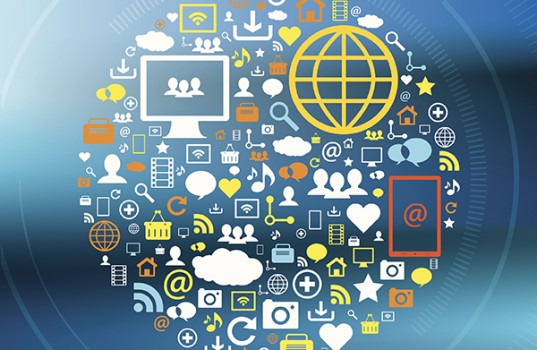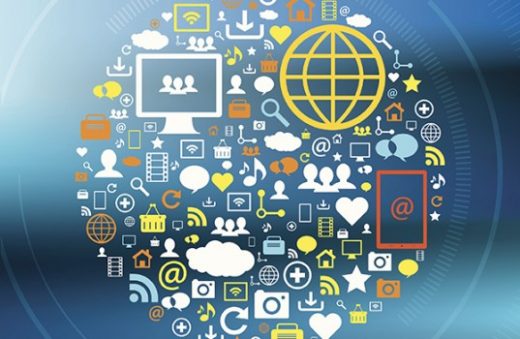5 Ways Technology is Shaping Politics in 2017
— May 8, 2017
During the last ten years, technological advancements have redefined many aspects of our society, including politics. Smartphones, tablets, and computers have enabled new technologies used by politicians and parties to communicate with the masses and influence them more effectively.

I’ve put together an article to help you understand the ways in which technology is shaping politics today, why they are so effective, and what lies ahead for the future of technology in politics.
1- Chatbots
Chatbots have taken the world by storm because of their ability to mimic natural conversation flows and provide help to consumers around the clock. Platforms now allow you to create chatbots in a matter of minutes and don’t require you have any programming knowledge.
Bots have reshaped the way businesses interact with consumers, and it’s already changing how politicians interact with the masses. Several political parties have deployed numerous chatbots to help them:
- Captivate their audiences
- Tell compelling stories
- Be available to followers around the clock
- Register voters
- Launch successful awareness and targeted campaigns
One of the most interesting things about chatbots is that they speak to people through their preferred devices and apps. They can also proactively deliver tailored updates to help followers stay connected with their candidates while in their comfort zone.
2- Information is More Available than Ever
Political parties and candidates have traditionally relied on speeches, radio, print media, and television to get their message across. This is mainly because these channels are:
- Capable of reaching larger audiences
- Able to provide information when people are paying most attention
- An easy way to give credibility and personality to a party or politician
However, with the rise of smartphones and other mobile devices, information is more readily available than before. But, what does this mean for politicians? It means they need to put relevant information about their campaigns and goals where their voters will see it.
The widespread access to immediate information means any new details, strategies, and objectives will reach the masses almost immediately, so posting the newest information online to keep voters updated is crucial to the success of any politician and/or party.
In addition to the above, politicians can now use media-rich content, like videos, podcasts, and interactive components on their websites, allowing them to boost engagement and have more reach than traditional static content.
3- Targeted Campaigns
Traditionally, one of the hardest parts of being a politician is targeting the right audience. Keeping your supporters interested is important, yet winning over new followers will lead to a successful vote or election. Web-tracking technology allows political parties to target specific audiences that are still sitting on the fence and are most likely to be influenced by their campaign. Some examples include:
- Personalized email campaigns
- Responsive website design that reacts differently to repeat visitors
- Targeted paid ads
Political parties can now build and deliver different digital marketing campaigns to different segments. Supporters can receive customized information about topics that interest them, while undecided voters can receive content designed to convert them into followers.
4- Security and the Rise of New Issues
With the constant development of new technology, new issues are sure to arise. Politicians must be aware of these issues and how to effectively counter them in order to keep information safe. Moreover, they need to be prepared to answer any questions the masses or the media might ask about this sensitive topic.
Anyone who followed the last US presidential election, and even those that didn’t, have at least heard of the importance of digital security in politics. The need to share information across the country, and sometimes country borders, requires high-security standards that must be followed at all times.
From a politician’s point of view, failing to learn and be up-to-date with security and the rise of new threats can mean:
- Losing the trust of your followers
- Being slaughtered by the media
- Fail to comply with mandatory laws
- Posing a threat to national security
5- Social Influence and Interaction
One of the biggest factors in the success of a political campaign is social influence and how well politicians interact with the masses. Technology now allows politicians to communicate directly with audiences, answering their questions, and expressing their views on specific topics.
Two great examples of this were President Barack Obama’s successive winning presidential campaigns:
- In 2008, the organizers of the Obama campaign focused on using Facebook, Twitter, and YouTube to spearhead his historic election. Political experts and critics credited much of Obama’s winning campaign to the use of these digital channels to connect with voters.
- In 2012, Obama’s campaign made another huge breakthrough when they decided against a big donor strategy, and instead, encouraged small donations, racking up more than $ 1 billion in contributions, and of course, Obama’s second term.
Finally…
Politics is one of the most important aspects of modern-day society, and technology is already having a huge impact on the way we view political affairs. Staying current with new technological advances is proving to be critical for both the masses and politicians striving to represent themselves as leaders.
Digital & Social Articles on Business 2 Community
(36)


